Name: SPARC (Osteonectin) Antibody (Polyclonal)
Description and applications: This antibody recognises a human acidic cysteine-rich secreted protein known as SPARC (Secreted Protein Acidic and Rich in Cysteine), osteonectin, or BM-40 (Basement Membrane Protein 40). It is a multifunctional calcium-binding glycoprotein with a molecular mass of 43 kDa that is encoded by a gene
that is located on the 5q33.1 chromosomal region. Under normal conditions, osteonectin is deposited into the extracellular matrix and next to or on basement membranes, and it is secreted by various cell types. The SPARC protein plays an important role in bone mineralization and cartilage organization, as well as in the interactions and remodelling of the extracellular matrix through its ability to increase the production and activity of metalloproteinases and to bind collagen. It is therefore a key element in wound healing, has a general antiproliferative effect by inducing cell differentiation, and acts as a modulator of certain cell populations subjected to migration during morphogenesis. In normal tissues, osteonectin is abundantly secreted by osteoblasts and odontoblasts. This protein is also expressed in ovarian surface cells, medium-sized vessels’ endothelial cells, podocytes, medullary megakaryocytes, bronchi, alveolar macrophages, and other normal tissues. Osteonectin mRNA was detected in adrenal cortex (steroid-producing cells) and by in situ hybridization in fibroblasts, smooth muscle, and dermal endothelial cells. In tumour tissues such as osteosarcoma (mainly osteoblastic osteosarcoma), hepatocellular carcinoma (negative normal liver), tumours of the ampulla of Vater, ovarian and nasopharyngeal carcinomas, meningiomas, minimum thickness melanoma, and tongue carcinoma, SPARC overexpression has been directly correlated with a lower degree of malignancy, invasive capacity and risk of recurrence; tumours with lower SPARC expression, on the other hand, are associated with poorer prognosis. Interestingly, in pancreas and colon adenocarcinomas and non-small cell lung cancers, only SPARC expression in the peritumoral stroma is associated with better survival. In breast tumours, osteonectin is expressed in a low proportion of ductal carcinomas in situ and in most high-grade phylloid tumours and the mesenchymal component of metaplastic carcinomas. In carcinomas with luminal A or triple negative genotypes, a low expression of this antibody is correlated with a poorer prognosis, whereas in ductal carcinomas in situ, osteonectin expression in the peritumoural stroma is related to a shorter recurrence of the lesions. Strong positive staining is observed in low-grade astrocytomas with progressive decrease in staining in higher grade cases, but with increased staining in tumour vessels. Osteonectin expression has also been detected in chondrosarcomas, Ewing’s sarcomas, fibrosarcomas, rhabdomyosarcomas, and leiomyosarcomas.
Composition: anti-human SPARC (Osteonectin) rabbit polyclonal antibody purified from serum and prepared in 10mM PBS, pH 7.4, with 0.2% BSA and 0.09% sodium azide.
Immunogen: SPARC precursor recombinant protein epitope signature tag (PrEST)

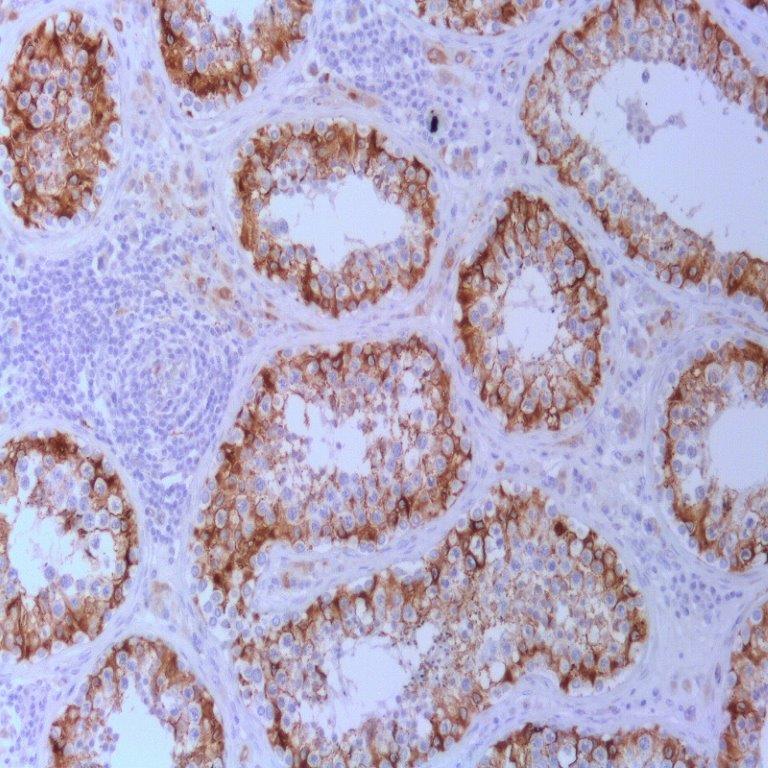
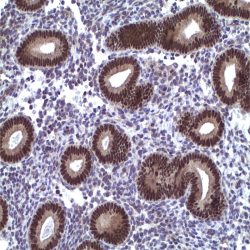
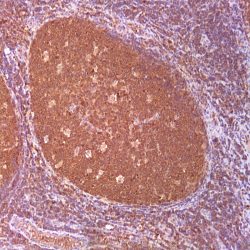
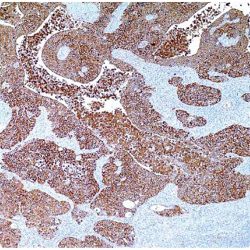
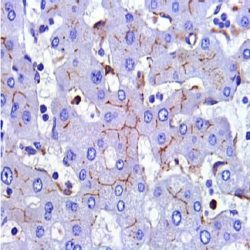
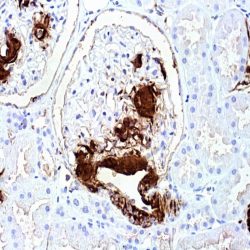
دیدگاهها
هیچ دیدگاهی برای این محصول نوشته نشده است.